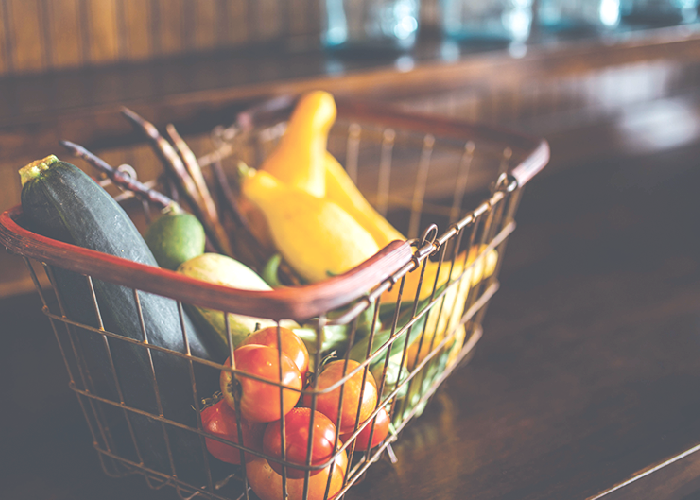7 Ways To Cut Down Your Grocery Bill With Little-To-No Effort
I admit — I am guilty of spending most of my money on groceries. For me, it never felt wrong to spend so much on food, because growing up, I was surrounded by my Italian grandparents who spent ALL their money on food. They taught me to buy quality (i.e. expensive) olives, oil, pasta, and cheese, because they were of better quality. However, taking their advice left me with a seriously depleted savings account. And since making those initial mistakes, I’ve learned that shopping smarter, and getting the items you want, is all about balance.
I’ve come a long way in terms of learning how to grocery shop, prepare, and store food smarter. Once I discovered TFD, and became more open with my friends about how much we all spend on food, I decided it was high time to cut down on my own grocery shopping bill. I realized I could no longer afford to live the way I was, and so I spent a long time scouring the internet to figure out how to put an end to unnecessary overspending on food. This is what I’ve learned since then, and what I’ve learned to implement in my own weekly habits!
Get a Costco membership!

If you go to Costco once a month for the next year, I will assure you the place will start to feel like home, and you will save a ton of money, especially if you buy in bulk (when the items are non-perishable). I have made the mistake of buying 50 yogurt cups and ending up eating none, and trust me, you don’t want to do that.
Costco is known as the perfect place to buy in bulk, but be careful — it’s easy to get carried away. There is a reason why Costco stores don’t have aisle signs: they want their customers to wander around and buy more products. I understand that some people don’t want a membership because they will feel compelled to use it, but if used properly, it can really help you save a ton of $$$. Once people get accustomed to shopping in a huge warehouse (and not knowing where certain things are), the experience of going to Costco can almost be therapeutic. I know a few people who split memberships and go grocery shopping together, which makes bulk items a more useful buy that you’re more likely to use (especially when perishable).
Don’t buy water!
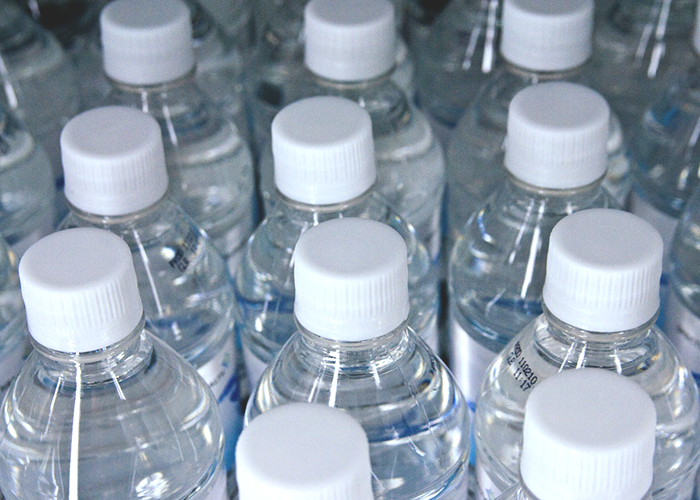
Why would you buy something 100 times more expensive than what it’s worth? The water is the exact same from the tap, and this is an area where I was personally wasting a ton of money. Drinking from the tap is much better for the environment AND your wallet. If you’d like to invest somewhere, get a Brita pitcher to assuage any tap water-related fears, and pick up a nice reusable bottle, too, to take with you wherever you might go (and therefore be tempted to buy a plastic bottle).
Have a budget and a list!
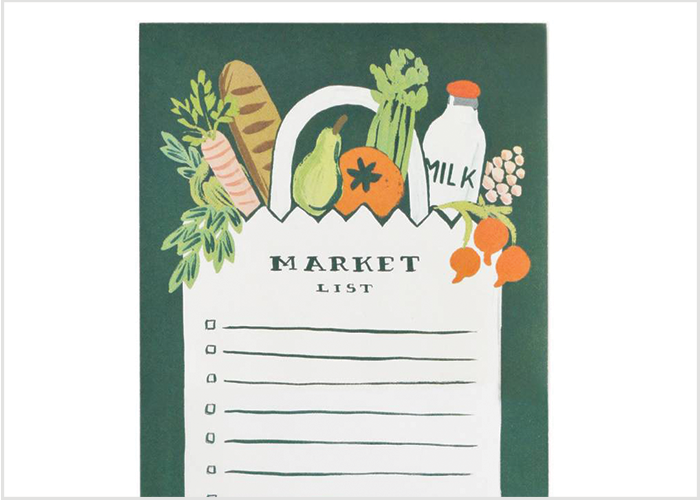
The first step to having a budget is to track what you spend, and compare that to what you should be spending. Look at all the items on your grocery bill, and put them on a Word Document (or Excel sheet). Cross out everything you shouldn’t have bought, everything you won’t eat, and everything you could have saved by not getting the name-brand. Make a list of the previous grocery bill, minus the crossed-out items (you can obviously make adjustments), and voilà, there’s your simple and efficient list. Whether or not you use this method, you should always adhere to your budget.
Make a meal plan!
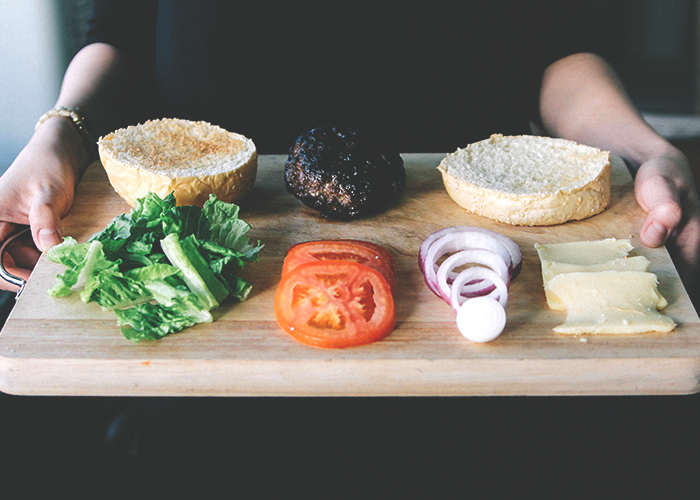
If you don’t use the method I showed you above, you can always make a meal plan. It doesn’t have to be exact, but it should be detailed enough to give you an idea of everything you’re going to have to buy for the week. There are literally countless apps and websites dedicated to helping you create meal plans that help you lose/gain/maintain your weight. This makes it incredibly easy to have a rough meal plan for the week.
However, remember that your list is only as good as the items you put on it, so you should look it over a few times to make sure you haven’t forgotten anything. Check twice to make sure you have vanilla extract in the cupboard, because once you stray off the list once or twice, you will feel less compelled to stick to your grocery list overall. I know from experience!
Use coupons (the right way)!
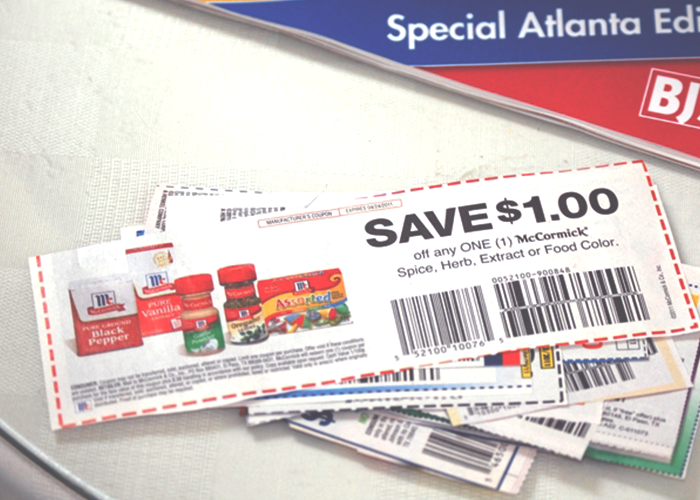
I have made the mistake of buying more food (that I would generally never buy) just because I had coupons. Don’t use them as a way to rationalize spending more. Look for coupons for items you already have on your list, instead of convincing yourself that you’re suddenly going to enjoy rainbow chard just because you can get an insane amount of it for two dollars this week.
You can also make coupons a social activity. Trade off unused coupons with friends or vice versa, or go grocery shopping with a friend and split great deals for items you need but don’t need an overabundance of. (And keep in mind that the days of old-school clipping are over, and there are tons of coupon apps for the shoppers who do pretty much everything on their smartphones.)
Look up, and then look down!
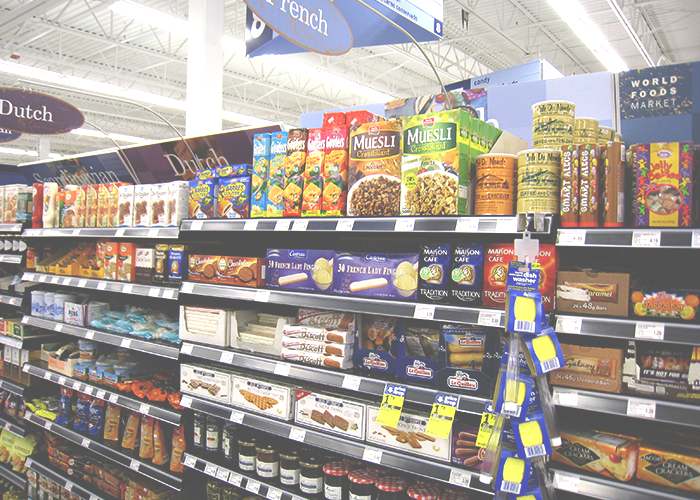
Grocery stores put their most expensive products at eye-level. When you’re out shopping, scan all the shelves and spaces to find cheaper equivalents and the best deals. Don’t be afraid of buying non-perishable food that aren’t name-brand: they taste the exact same and are much cheaper.
Clean out your pantry and cupboards!
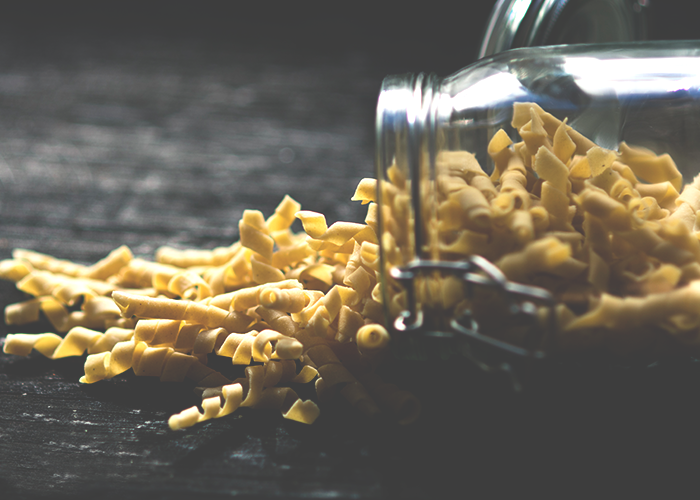
It sucks to realize you bought ketchup when you already had some in your pantry and your fridge, but you’re pretty much doomed to do that every time you shop if you don’t have a good idea of what is currently in your kitchen. Similarly, you might assume that you have something because you see it every time you open a cupboard, but haven’t noticed that it’s been expired for an entire year. You always hear about people doing purges and inventories of everything in their closet once in a while; why should it be different with the food in your cabinets? Throw out anything you don’t eat, or which has expired, and make sure you know the basics of what you have for when you’re out shopping.
Becoming a good food shopper is incredibly important to being financially stable and responsible, and the first step is being honest about your habits and making the choices that are right for you. We can all ease into being a certified kitchen goddess, but we have to force ourselves to make those little changes every day.
For more tips, check out a few TFD originals about how to grocery shop smarter, below!
- TFD’s 11 Things You Should Start Buying At The Grocery Store
- Our 14 Favorite Go-To Websites For Making Home Cooked Meals
- 19 Ingredients Every Home Cook Needs In Their Kitchen
- 9 Simple Ways To Start Grocery Shopping Smarter
Serena currently lives in Montreal with her dog, but she’s a cat person in hiding.

